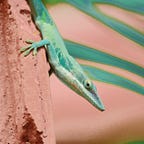So, you are considering going to Cuba? Excellent choice, Cuba is a beautiful country with a vibrant culture and amazing people. The nature is gorgeous and the cities will show you a history made by people that take a lot of pride in their country. Having said that, there are many things that might be different than what you are used to. For that reason it is recommended to prepare well for your visit. Here 5 tips:
1. Cuba has 2 currencies
In Cuba there are two different currencies: the Peso Convertible (CUC) and the Peso Cubano (CUP). The Peso Cubano is the national currency, but as a traveler you will mostly pay with the Peso Convertible. In places tourists visit like restaurants, museums, and shops the prices are in CUC, but if you wish to go off the beaten track it is recommended to also carry some CUP.
Both currencies are only available in Cuba and are easiest to get when you are still at the airport. Currency exchange shops, casa de cambio in Spanish, can be found in many places, especially in the bigger cities, but banks and some hotels also do currency exchange. The CUC is worth about the same as the American dollar, or 90 Eurocent and exchange costs are around 3% (10% for the USD). You can then exchange your CUC into CUP in a ratio of about 1:24. Always bring your passport when exchanging currencies. Make sure you don’t get too many large bills (no larger than 20 CUC), otherwise shops might not have the change. Spend or exchange your Cuban money before leaving the country.
Many places only accept cash, but if card is accepted it has to be a credit or debit card by Visa or Mastercard. However, if your card is from an American bank it will NOT be accepted. If you wish to get cash from an ATM you can do so at any bank or find one online at mastercard.com/atmlocator and visa.com/atmlocator.
2. (Free) internet is not a given
There are much fewer options to access the net than you are probably used to! WiFi is never free, and you need to buy a prepaid scratch card to go online. You can buy these at the government ETECSA offices, the airport, state-run hotels, and occasionally street vendors. Make sure you bring your passport. You can buy cards for .5, 1, or 5 hours of internet access and once you have the card you can use it in two places. The first are public WiFi spots, like plazas, internet cafes, and in front of ETECSA offices. The second option is visiting a state-run hotel. Make sure you log out once you are done using the web so you don’t waste your minutes.
One hour of WiFi costs 1 CUC at the ETECSA office, but there are often very long lines. Anywhere else costs a little more. There is also a 3G network in the provincial capitals, but using it will come at a much higher cost than the scratch cards.
Internet can be slow, so try to disable internet for apps you don’t need to use and try to download or print anything before leaving. For example, you can use your GPS function without internet if you download the maps onto your phone.
3. Many don’t speak English
Try to learn some Spanish phrases as many Cubans only speak a couple words of English. The Cubans will appreciate your attempt even if its not very good and be even more friendly. If you don’t speak any Spanish keep it simple and try learn words and numbers so you can communicate with shopkeepers and ask for directions. Tip: download the Spanish language in your translator app so you can use it offline if you need to.
4. Don’t talk about politics in Cuba
Cuba is one of the few remaining communist countries, and this means the state has a lot of control over the daily lives of the people, like with the state controlled internet access. Another example are the prices of products you find in grocery and produce shops; these are determined by the government. For this reason both of these examples are political and something you should not talk about. Of course this also means that you are not allowed to directly speak your opinions on the political system and how the country is run.
In addition to that, don’t take photos of anything you can expect to be controlled by the state, like government buildings, propaganda, and police.
5. Cuba is very safe, but do watch out for scams
Any kind of violent crime is uncommon in Cuba, and it is safe for women to walk alone. There might be some catcalling, but there are no bad intentions behind it. As in any tourist destination, there is the occasional pickpocket, so be smart and keep your money in a pocket or bag that it cant easily be stolen from.
You can find the following scams in Cuba. Fake local guides, these people will show you some of the tourists areas of the city, often at a very inflated price. They just try to get easy money, and won’t show you anything authentically Cuban. There are also people that will approach you with tips and directions, and you might think its just conversation, but then suddenly they demand money for helping you. Another scam is people that seem nice and just out for some interesting conversation, and they will suggest a bar or restaurant to get something to eat, but then make you pay the whole bill. The restaurant gives these people commission, and you can expect the bill to be higher than normal.
